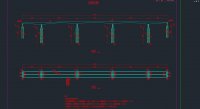G348沙洋汉江公路二桥85+3×160+85m连续梁桥上部结构设计(含CAD图)(任务书,开题报告,外文翻译,论文说明书22000字,CAD图30张)
摘要
国内外近30年以来,连续梁结构体系已成为预应力混凝土桥梁的最重要的桥型之一,在40米-200米的跨径范围内,有着绝对的优势。在今后的发展中,连续梁桥同样具有很大的发展空间。
根据设计任务要求,本次毕业设计主要对G348沙洋汉江公路二桥主桥上部结构进行设计,该桥的设计采用的是大跨度连续梁,施工方法采用挂篮悬臂浇筑施工。本次设计先用Midas软件较精确地模拟主桥上部结构;其后,完成恒载内力标准值计算、活载内力标准值计算、收缩及徐变引起的二次内力标准值计算、预应力损失引起的二次内力标准值计算、荷载组合、各主要构件承载力极限状态验算、各主要构件正常使用极限状态验算,完成施工过程内力分析。该毕业设计重点在于Midas建模以及相关验算,运用CAD绘制设计中所涉及的主要结构的图形,并进行设计计算说明书的编写和其他资料收集、翻译工作。
关键词:连续梁桥;Midas 建模;挂篮施工;截面验算
Abstract
In recent 30 years at home and abroad, the continuous beam structure system has become one of the most important Bridges of Prestressed Concrete Bridges, and has the absolute advantage in the span of 40 meters to 200 meters.In the future, continuous beam bridges also have a great development space.
According to the design task requirements, this graduation design is mainly related to the upper structure of the G348 Shayang Hanjiang highway second main bridge, the design of this bridge is based on the large span continuous beam criterion, adopting the hanging basket cantilever pouring construction method. In this design, Midas software is used to accurately model the superstructure of the main bridge.Next, it’s needed to complete the calculation of standard dead load internal force, internal force of live load standard value,shrinkage and creep secondary internal forces caused by the standard, and loss of prestress secondary internal forces caused by the standard, and the checking calculation of load combination, the major component bearing capacity limit state and the main component of normal use limit state checking; Then, it’s also needed to finish the internal force analysis of this entire construction process.The graduation design is focused on Midas modeling as well as the related calculation, the drawing of main graphs of this designing structure using CAD, the preparation of the design specifications and other information collection and translation work.
Keywords:Continuous girder bridge;Midas modeling;Construction of hanging baskets;Cross section checkingcalculation
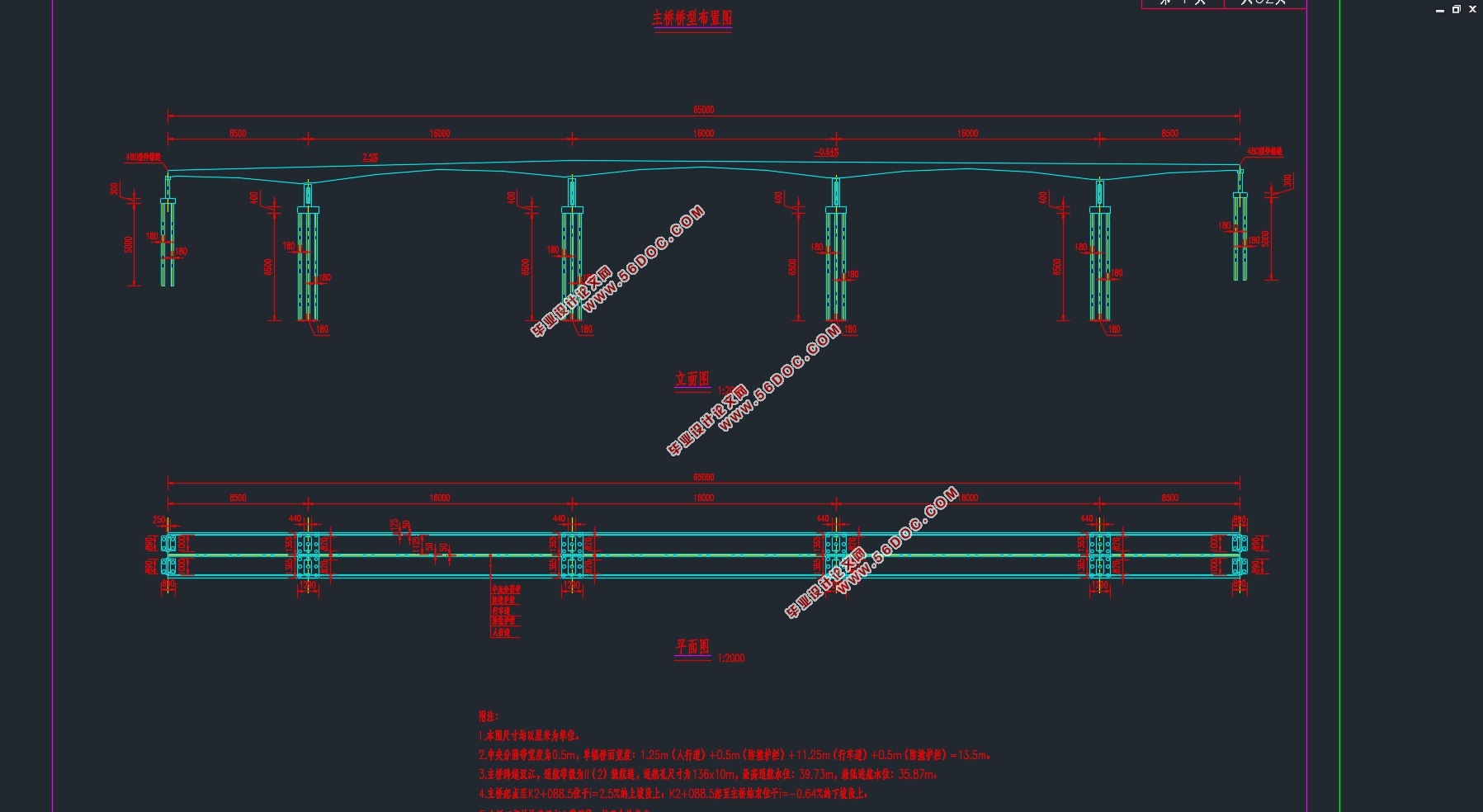
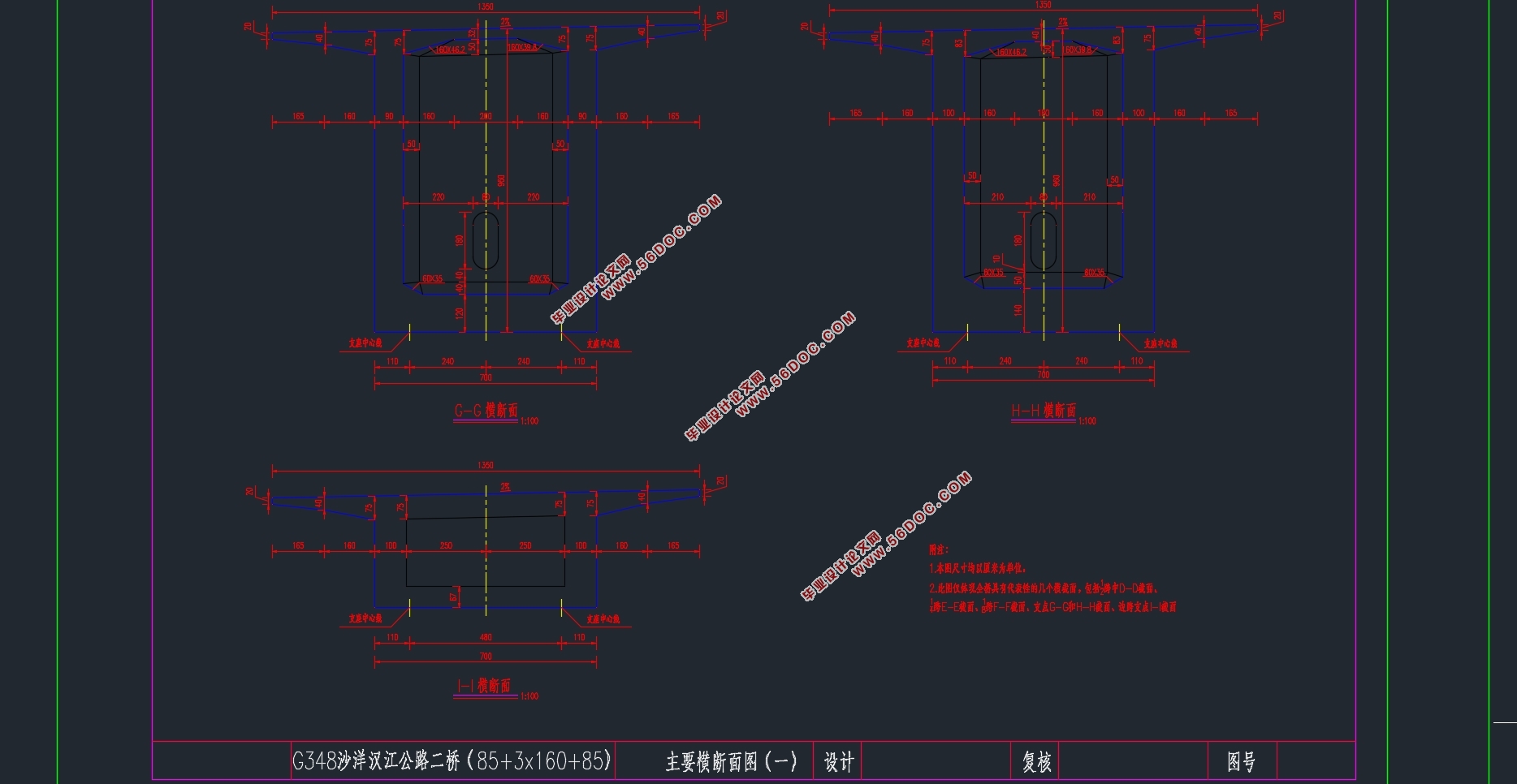
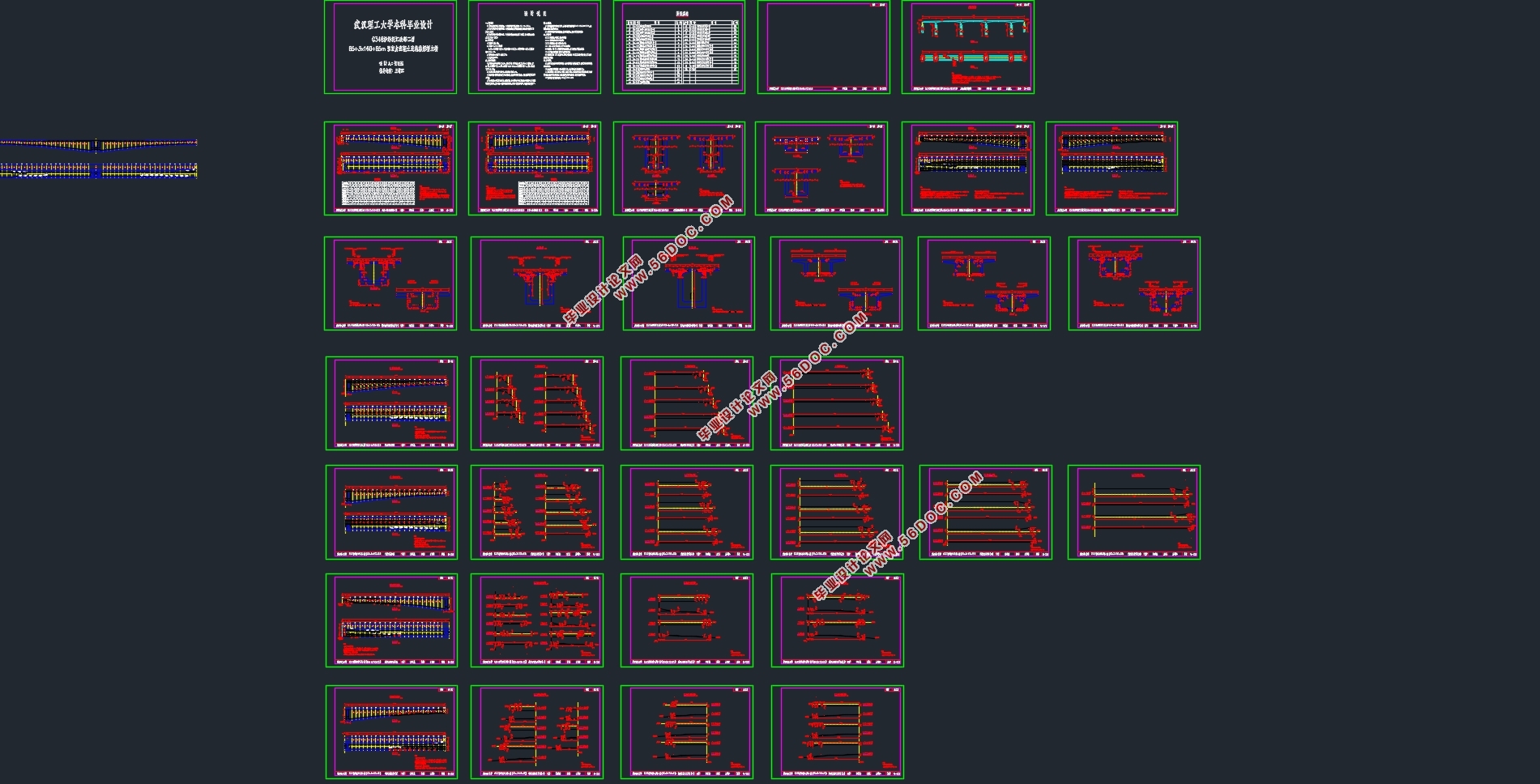
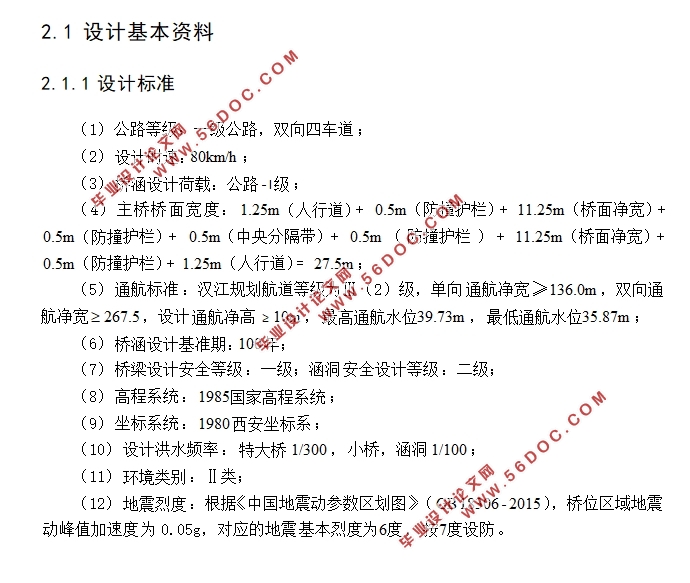
目录
第一章 绪论 7
1.1 桥梁的基本组成与类型 7
1.1.1 桥梁的基本组成 7
1.1.2 桥梁的主要类型 7
1.2 桥梁的总体规划和基本设计要求 11
1.2.1总体规划 11
1.2.2基本设计要求 11
1.3 预应力混凝土连续梁桥 12
1.3.1 预应力混凝土连续梁桥桥型特点 12
1.3.2 预应力混凝土连续梁桥发展概况 13
1.4 毕业设计任务书 13
1.4.1 课题来源 13
1.4.2 毕业设计的主要内容 13
1.4.3 提交的成果 14
1.4.4 毕业设计的规划 14
第二章 桥梁设计方案及基本资料 14
2.1 设计基本资料 14
2.1.1 设计标准 14
2.1.2 设计计算依据 15
2.1.3 相关计算参数 15
2.1.4 主要材料 16
2.2 主桥上部结构设计 17
2.2.1 主桥总体桥跨布置 17
2.2.2 主梁细部尺寸 17
2.2.3 主梁横截面尺寸 17
2.2.4 预应力束布置 18
2.3 主桥施工方案及注意事项 20
2.3.1 施工方案 20
2.3.2 施工注意事项 21
第三章 Midas模型的建立 22
3.1 建模过程 22
3.1.1 材料定义 22
3.1.2 截面的定义 23
3.1.3节点和单元的定义 24
3.1.4 变截面组的定义 25
3.1.5 定义时间依存材料特性 26
3.1.6 静力荷载工况的定义 26
3.1.7 预应力荷载的定义 27
3.1.8 移动荷载工况的定义 28
3.1.9 组及施工阶段的定义 29
3.2 PSC设计 30
第四章 主梁内力计算 30
4.1 恒载内力计算 30
4.2 活载内力计算 32
4.3 荷载组合 35
第五章 次内力计算 37
5.1 收缩及徐变引起的次内力 37
5.2 预应力损失引起的次内力 40
5.2.1 预应力损失次内力计算原理 40
5.2.2 先期预应力束产生的徐变次内力 41
5.2.3 后期预应力束产生的弹性次内力 41
第六章 承载能力极限状态验算 42
6.1正截面抗弯承载能力验算 42
6.2斜截面抗剪承载能力验算 46
第七章 正常使用极限状态验算 47
7.1使用阶段正截面抗裂验算 48
7.2使用阶段斜截面抗裂验算 50
第八章 持久状况和短暂状况构件的应力验算 51
8.1使用阶段正截面压应力验算 51
8.2使用阶段斜截面主压应力验算 53
8.3施工阶段正截面法向应力验算 54
8.4受拉区钢筋的拉应力验算 57
参考文献 60
毕业设计总结 61
致谢 62
|
